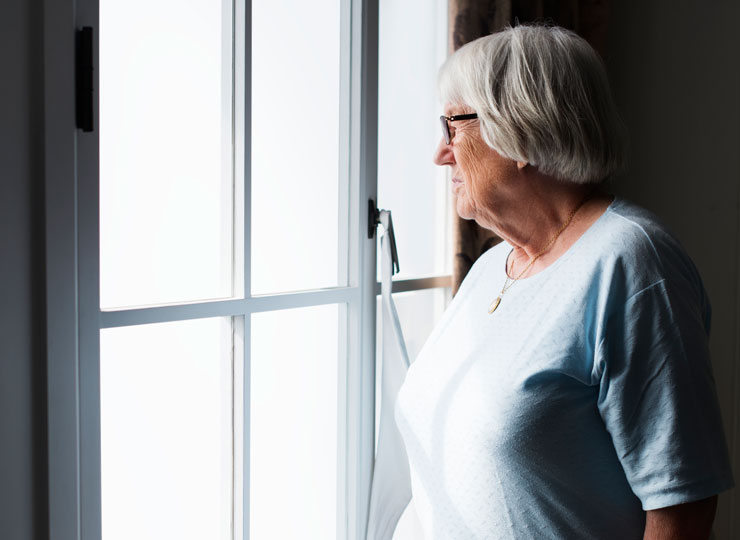
June 9, 2022
Being socially cut off from others can increase your risk of Alzheimer’s disease and other forms of dementia, according to a new report. The study found that social isolation was linked to shrinkage in parts of the brain critical for cognition, and that being socially isolated was tied to a 26 percent increased risk of dementia. The risks of social isolation were independent of being depressed or feeling lonely, which in other studies have also been linked to an increased risk of dementia.
“Social isolation is a serious yet under-recognized public health problem that is often associated with old age,” said study author Jianfeng Feng of Fudan University in China. “Given the findings of this study, social isolation may be an early indicator of an increased risk of dementia.”
The study was completed before the spread of Covid-19, and Dr. Feng noted that during the pandemic, social isolation has only intensified, with older people in particular increasingly cut off from social networks. “It’s more important than ever to identify people who are socially isolated and provide resources to help them make connections in their community,” he said.
For the study, researchers looked at 462,619 older men and women who were part of the UK Biobank, a database containing detailed genetic and health information for people living in the United Kingdom. Their average age was 57 at the start of the study.
Over the next 12 years, study participants underwent regular physical and medical exams, including MRI brain scans to assess brain volume. They also took thinking and memory tests to assess their cognitive function.
Participants also filled out surveys about their social interactions, and whether they felt lonely. They were also asked three questions about their social connectedness: 1) Do you live with others? 2) Do you have visits with friends or family at least once a month? And 3) Do you participate in social activities such as clubs, meetings or volunteer work at least once a month? They were considered to be socially isolated if they answered “no” to at least two of those questions. In the study, 9 percent of the participants met the criteria for being socially isolated, and 6 percent said they felt lonely.
During the 12-year study period, nearly 5,000 of the men and women developed dementia. Dementia was more likely to develop in those who were socially isolated (affecting 1.55 percent of that group) compared to those who stayed socially connected (affecting 1.03 percent). Those who were socially isolated also had lower volume in parts of the brain important for thinking and learning, independent of such factors as excessive alcohol consumption or smoking.
The findings, published in the journal Neurology, are consistent with earlier research showing that social isolation can be bad for brain health. Behavioral experts say that to help combat loneliness and social isolation, it’s vital to reach out to others. Pick up the phone and make a call, or ask a neighbor if they need help.
By ALZinfo.org, The Alzheimer’s Information Site. Reviewed by Marc Flajolet, Ph.D., Fisher Center for Alzheimer’s Research Foundation at The Rockefeller University.
Sources: Chun Shen, PhD; Edmund Rolls, PhD; Wei Cheng, PhD; et al: “Associations of Social Isolation and Loneliness With Later Dementia.” Lawrence Whalley, MD: “The Cognitive Costs of Social Isolation” (editorial). Neurology, June 8, 2022.











